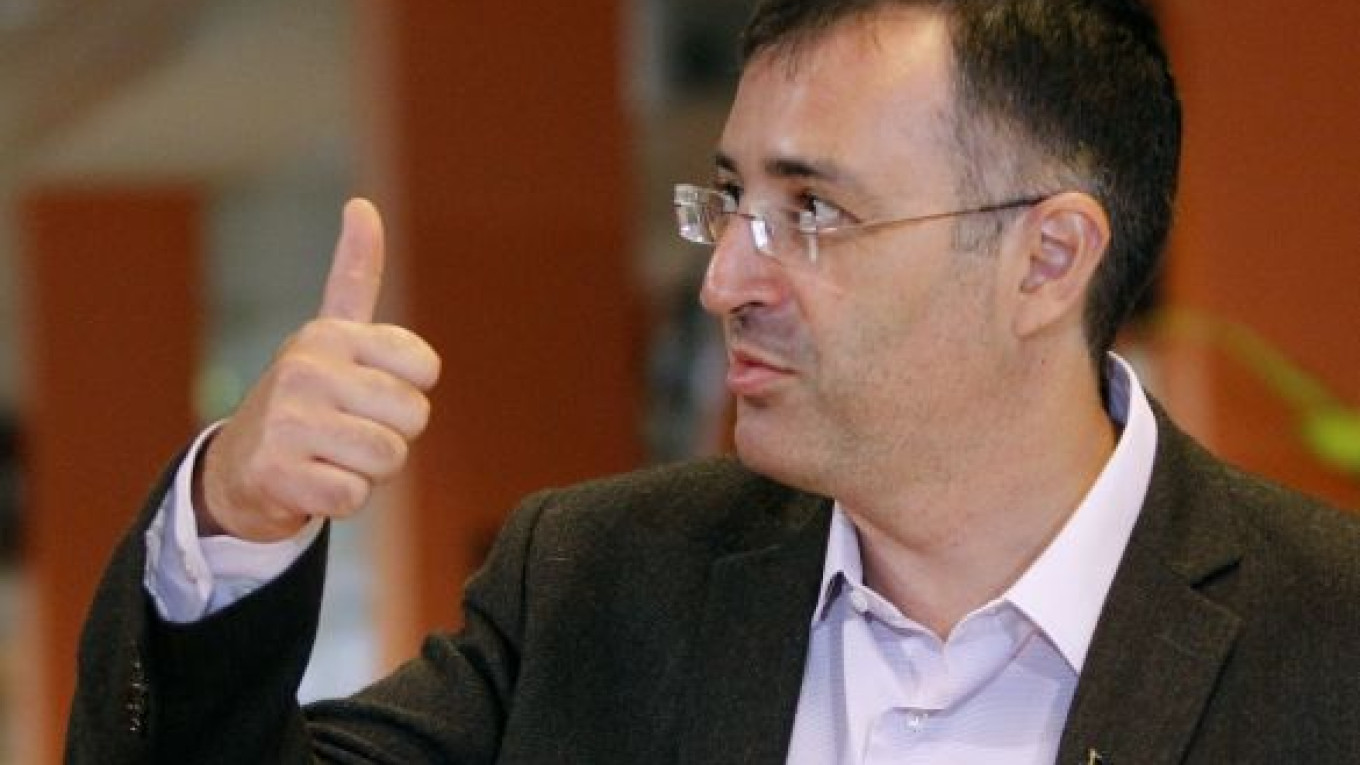President Vladimir Putin, who faces the biggest protests of his 12-year rule, could lose power overnight if the oil price sinks and he fails to reduce corruption said Sergei Guriev, rector of the New Economic School in Moscow.
He said the former KGB spy was in little danger in the near future if the price of oil, the country’s main export commodity and a vital revenue source, remained over $100 per barrel.
But he said political upheaval could follow swiftly if the oil price sank and Putin, back in the Kremlin since May, failed to improve the investment climate or tame the corruption and bureaucracy that have plagued Russia for centuries.
“We all lived through the Soviet Union — which was forever until it was no more. … These systems change very quickly,” Guriev said at the Reuters Russia Investment Summit, recalling that few predicted the Soviet empire’s sudden demise two decades ago.
“The regime may fall apart overnight, and in a way that we don’t know. It may be in a peaceful way; it may be in a bloody way,” Guriev said.
Guriev is an active player in an “open government” initiative set up by Prime Minister Dmitry Medvedev that is pushing a business-friendly reform agenda, but he also has ties to one protest leader, lawyer and blogger Alexei Navalny.
He said he thought Putin would heed the warnings before it was too late but must urgently improve the investment climate to keep credibility with the business community.
Large capital outflows, which reached $80 billion last year, highlighted Russian investors’ pessimism, and the protests showed the dissatisfaction of the emerging middle class, he said.
Opinion pollsters say Putin’s traditional support is holding up in the provinces, but Guriev said: “I think (Putin) has already written off the Moscow middle class. … But the general public outside Moscow is also losing patience.”
“If he didn’t care, we wouldn’t see all this repression,” he said, referring to new laws that increase potential fines for protesters, tighten controls on the Internet and force lobbying groups that receive funding from abroad to register with the authorities as foreign agents and undergo additional checks.
An anti-corruption drive would be a more effective way for Putin to disarm the opposition, which has made fighting graft a top demand, and help shore up his own popularity, Guriev said.
“If Putin fights corruption successfully, the opposition is gone,” he said. “If Putin doesn’t fight corruption, he’s gone, and a new government will fight corruption.”
Guriev forecast growth of 3 percent in 2013 — a relatively low level compared with that of recent years — but said that even this rate would depend on the oil price. Were the price to fall to $60 per barrel, fiscal reserves would run out in two years, causing a crisis in the government’s finances, he said.
The oil price at which Russia’s budget balances has risen above $100 per barrel, from between $50 and $55 per barrel five years ago.
“The government is popular (with ordinary Russians) because it spends more and more and more,” he said. “If the oil price were $55, and the government could spend only what it can afford at $55, I think Putin would be gone.”
Related articles:
A Message from The Moscow Times:
Dear readers,
We are facing unprecedented challenges. Russia's Prosecutor General's Office has designated The Moscow Times as an "undesirable" organization, criminalizing our work and putting our staff at risk of prosecution. This follows our earlier unjust labeling as a "foreign agent."
These actions are direct attempts to silence independent journalism in Russia. The authorities claim our work "discredits the decisions of the Russian leadership." We see things differently: we strive to provide accurate, unbiased reporting on Russia.
We, the journalists of The Moscow Times, refuse to be silenced. But to continue our work, we need your help.
Your support, no matter how small, makes a world of difference. If you can, please support us monthly starting from just $2. It's quick to set up, and every contribution makes a significant impact.
By supporting The Moscow Times, you're defending open, independent journalism in the face of repression. Thank you for standing with us.
Remind me later.


